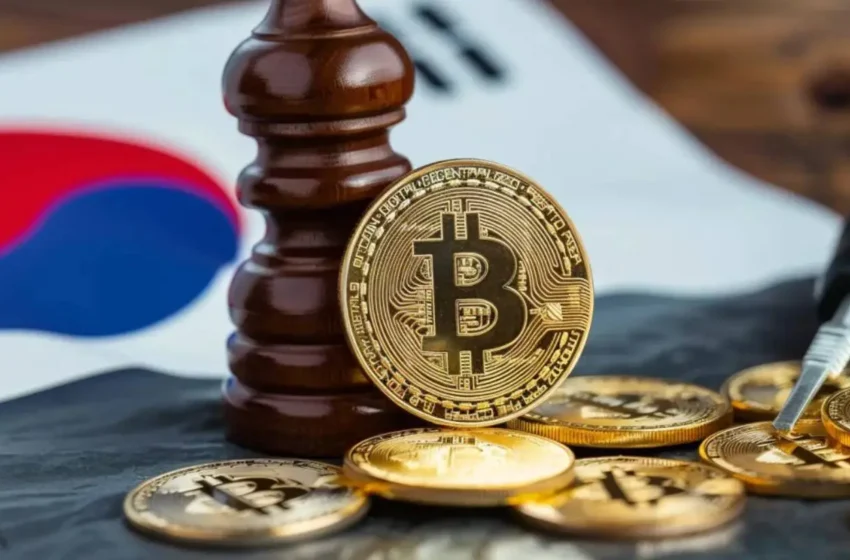South Korea Mandates Crypto Exchanges to Secure 80% of Assets in Cold Storage
(Originally posted on : Crypto News – iGaming.org )
With the intention of protecting cryptocurrency investors, South Korea has passed its first significant set of laws. In order to provide more security and transparency, these new regulations, known as the Protection of Virtual Asset Users (PVAU), place stringent restrictions on Virtual Asset Service Providers (VASPs).
VASPs must keep at least 80% of consumers’ digital assets in cold storage according to the PVAU framework. The purpose of this approach is to safeguard assets against hacking incidents and cyber threats. In addition, respectable financial institutions will be chosen by the Financial Services Commission (FSC) to oversee fiat deposits made to VASPs. This guarantees the safety and separation of consumer cash from the operating funds of the VASPs.
VASPs are also mandated to invest customer funds in “risk-free” assets to generate a yield. This approach guarantees that, in the event of a cryptocurrency exchange bankruptcy, the designated financial institutions can directly repay customer funds.
Response to Past Crises
These stringent regulations are a direct response to the collapses of Terra-Luna and FTX, which resulted in significant financial losses for investors. The FTX implosion, in particular, had a substantial impact on South Korea, with over 6% of its traffic coming from the country. To prevent similar incidents, the PVAU requires VASPs to be insured or maintain a reserve fund to cover potential losses due to hacks or liquidity crises.
Additionally, VASPs must restrict user deposits and withdrawals under certain conditions to mitigate irregular activities. This provision offers further control and security for investors.
New players only. Exclusive Welcome Bonus of up to $2,500
The Financial Supervisory Service (FSS), the executive arm of the FSC, has implemented a real-time monitoring system in collaboration with cryptocurrency exchanges. This system, launched alongside the User Protection Act on July 19, aims to provide “constant monitoring of abnormal transactions.” It is expected to cover 99.9% of the country’s crypto trading volume. Any detected irregularities must be reported to the FSS via a dedicated data transmission line.
When the system was introduced in early July, 29 crypto exchanges, including Upbit, Bithumb, Coinone, Korbit, and Gopax, registered with the FSS to comply with these new regulations.
This regulatory push comes as South Korea’s Ministry of Economy and Finance considers postponing the 20% crypto gains tax, originally set for implementation early next year, to 2028. The recent regulations underscore South Korea’s commitment to fostering a secure and transparent cryptocurrency market while balancing investor protection and market growth.







 Bitcoin
Bitcoin  Ethereum
Ethereum  Tether
Tether  XRP
XRP  USDC
USDC  Solana
Solana  TRON
TRON  Dogecoin
Dogecoin  Lido Staked Ether
Lido Staked Ether  Figure Heloc
Figure Heloc  WhiteBIT Coin
WhiteBIT Coin  Bitcoin Cash
Bitcoin Cash  USDS
USDS  Cardano
Cardano  LEO Token
LEO Token  Wrapped stETH
Wrapped stETH  Hyperliquid
Hyperliquid  Ethena USDe
Ethena USDe  Wrapped Bitcoin
Wrapped Bitcoin  Canton
Canton  Binance Bridged USDT (BNB Smart Chain)
Binance Bridged USDT (BNB Smart Chain)  Chainlink
Chainlink  Monero
Monero  Stellar
Stellar  USD1
USD1  Wrapped eETH
Wrapped eETH  Rain
Rain  Dai
Dai  sUSDS
sUSDS  Hedera
Hedera  PayPal USD
PayPal USD  Litecoin
Litecoin  Coinbase Wrapped BTC
Coinbase Wrapped BTC  Zcash
Zcash  Avalanche
Avalanche  Shiba Inu
Shiba Inu  WETH
WETH  Sui
Sui  Toncoin
Toncoin  Cronos
Cronos  USDT0
USDT0  World Liberty Financial
World Liberty Financial  Tether Gold
Tether Gold  MemeCore
MemeCore  PAX Gold
PAX Gold  Uniswap
Uniswap  Polkadot
Polkadot  BlackRock USD Institutional Digital Liquidity Fund
BlackRock USD Institutional Digital Liquidity Fund  Ethena Staked USDe
Ethena Staked USDe  Mantle
Mantle  Falcon USD
Falcon USD  Aave
Aave  Aster
Aster  Pepe
Pepe  Global Dollar
Global Dollar  Bittensor
Bittensor  Circle USYC
Circle USYC  Bitget Token
Bitget Token  OKB
OKB  Ripple USD
Ripple USD  syrupUSDC
syrupUSDC  HTX DAO
HTX DAO  Pi Network
Pi Network  Sky
Sky  BFUSD
BFUSD  Ethereum Classic
Ethereum Classic  NEAR Protocol
NEAR Protocol  Ondo
Ondo  Superstate Short Duration U.S. Government Securities Fund (USTB)
Superstate Short Duration U.S. Government Securities Fund (USTB)  Internet Computer
Internet Computer  Gate
Gate  POL (ex-MATIC)
POL (ex-MATIC)  KuCoin
KuCoin  Pump.fun
Pump.fun  Worldcoin
Worldcoin  Cosmos Hub
Cosmos Hub  Jupiter Perpetuals Liquidity Provider Token
Jupiter Perpetuals Liquidity Provider Token  Midnight
Midnight  Quant
Quant  USDtb
USDtb  NEXO
NEXO  Jito Staked SOL
Jito Staked SOL  Ethena
Ethena  Spiko EU T-Bills Money Market Fund
Spiko EU T-Bills Money Market Fund  Binance-Peg WETH
Binance-Peg WETH  Official Trump
Official Trump  Rocket Pool ETH
Rocket Pool ETH  Algorand
Algorand  USDD
USDD  Binance Bridged USDC (BNB Smart Chain)
Binance Bridged USDC (BNB Smart Chain)  pippin
pippin  OUSG
OUSG  Wrapped BNB
Wrapped BNB  Janus Henderson Anemoy AAA CLO Fund
Janus Henderson Anemoy AAA CLO Fund